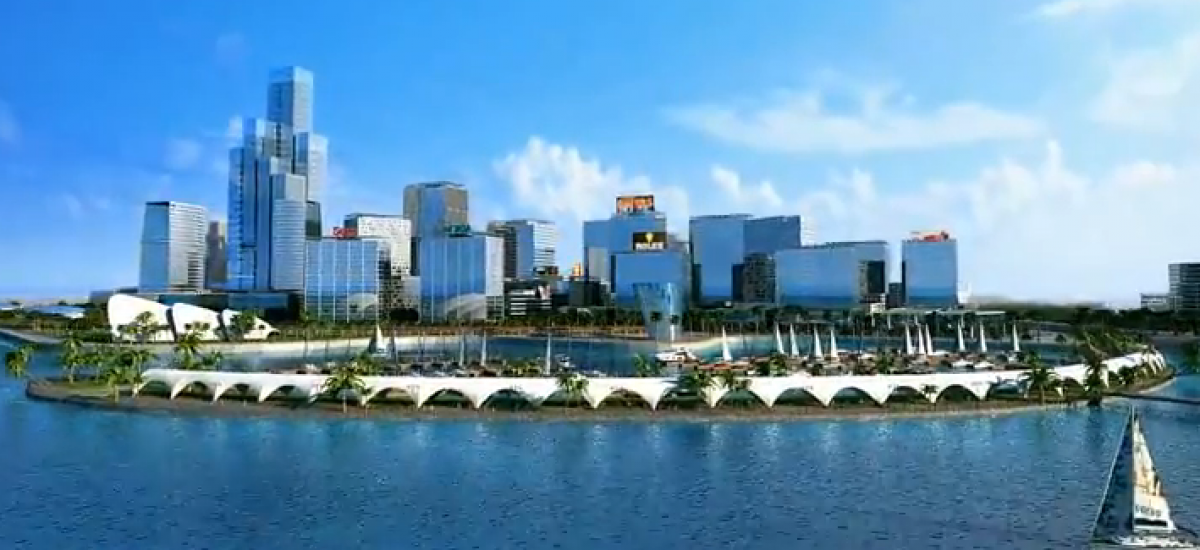The call for full transparency regarding the negotiations that led to the Port City must be provided to the public, however the deliberations and resolution at a political level will take a ponderously slow pace. The information that is now before us, suggest that the entire ‘Port City’ project, was done on the whims and personal interests of certain individuals in a process that allowed commencing the project without the proper approval procedure being adhered to. While the resolution of this conundrum will take its time, it will be useful to consider the alternatives to what has been set in train.
Alternatives must to be considered in the face of the as massive problems brought about by the lack of proper procedure, problems that will obviously slow or re-direct the implementation of this project. One of the glaring errors is the Environmental report obtained from Morotuwa University. While its findings are mired in controversy, it seems that this is the only document in existence that confers any sense of legitimacy to the project. However the limited scope of this document is seen in the fact that it only refers to the impact of a landfill on the sea front, there is no mention of the construction of a city on the reclaimed land or of the impact on the project on Colombo City! !
If a city is to be built on the reclaimed land, where are the permits that allow for such activity? It brings up the interesting question as to who will be the authority to issue building permits, the Colombo Municipality or a new city municipality? What will be the political makeup of such an entity? If some of the land is owned by another nation, will we have any control of activities there? There are further questions, what industry will be allowed or disallowed within this area? Where will they obtain the power and fresh water? How will air and sound pollution be mitigated? Until such questions are resolved it will be obvious that the proposed ‘Port City’ cannot enter a construction phase.
These are just a few of the critical questions that need to be answered before any building or other construction is allows on the filled land. There is of course the vexing question of sovereignty, whose laws and standards will prevail on this new bit of land? There will be no easy resolution to these questions.
Now that we have some filled up land in front of Colombo, it will be useful to see what other nations have done with such reclaimed land. One interesting example is the new landfill project in Singapore. In August 2007 Singapore announced ‘The Gardens by the Bay’ as an integral part of a strategy by the Singapore government to transform Singapore from a “Garden City” to a “City in a Garden”. The stated aim is to raise the quality of life by enhancing greenery and flora in the city. The Gardens by the Bay was intended to become Singapore’s premier urban outdoor recreation space, and a national icon. An international competition for the design of the master plan, held in January 2006, attracted more than 70 entries submitted by 170 firms from 24 countries. An area of 101 ha was set aside for the project. The final construction cost for the project, not including the price of the land but including an access road, drainage works, and soil improvement, was within a $1.035 billion allocated budget. The annual operating cost was expected to be approximately $58 million, of which $28 million was for operation of the Conservatory buildings. The project received 1.7 million visitors between June and October 2012 and has created tens of thousands of jobs and economic opportunities for Singaporeans.
Colombo city could do with beautification and development to enhance the quality of life of its citizens and to change its image into a welcoming venue for all citizens to enjoy. It could follow Singapore and build the land reclaimed for the defunct ‘Port City’ to become the premier urban outdoor recreation space in this region; we could create a national icon that truly reflects the beauty of this land and the aspirations of its people. It could deliver the ‘Bakti Pooja’ that we claim for our nation when we sing our anthem!
We could plant trees in the park and confirm the Greek Proverb that “A society grows great when old men plant trees whose shade they know they shall never sit in”.

